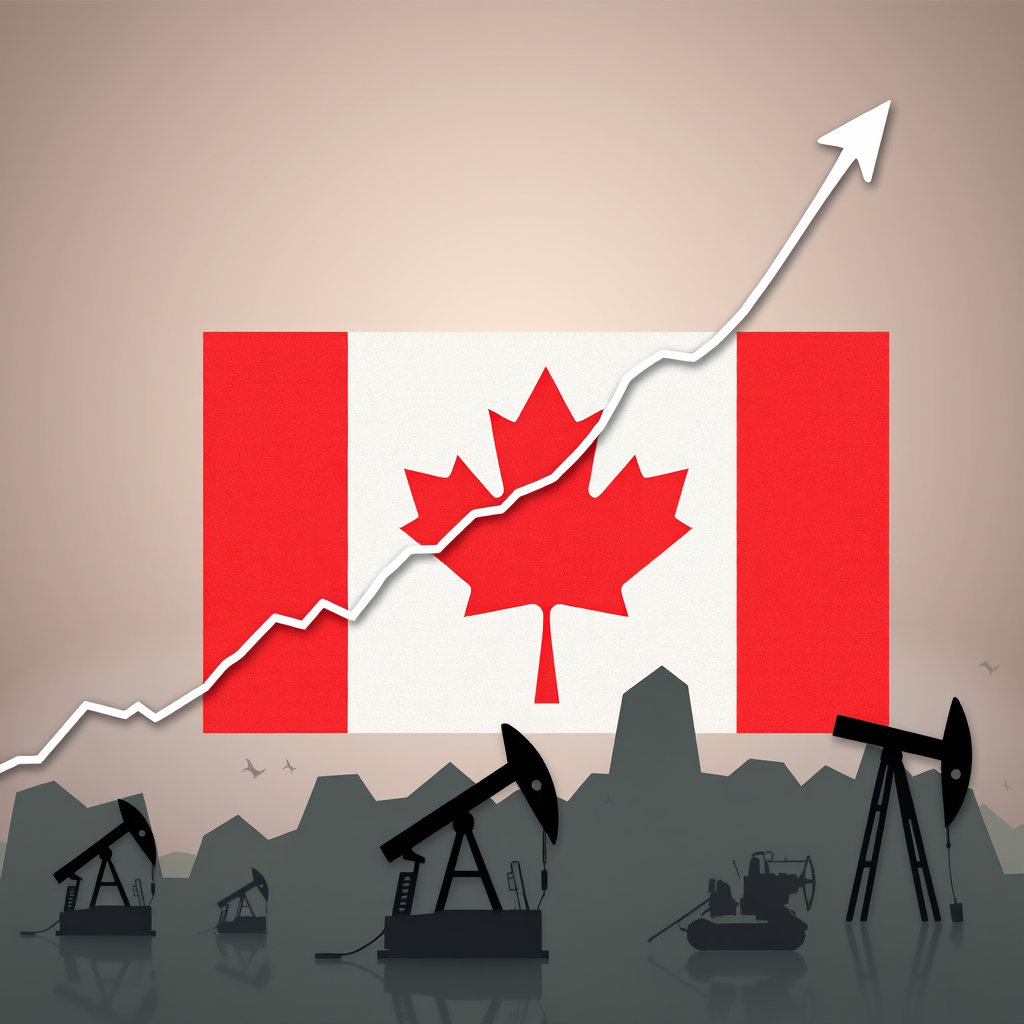The Canadian dollar has surged to its strongest position in three months against the US dollar, reaching 1.35 CAD/USD as commodity prices experience a significant rally driven by global supply concerns and increased market volatility.
Commodity Rally Drives Currency Strength
Oil prices have climbed above $78 per barrel, while gold has reached new highs near $2,080 per ounce. This surge in commodity prices directly benefits Canada's resource-heavy economy, making the Canadian dollar more attractive to investors seeking exposure to natural resources and energy markets.
For Canadian investors looking to invest small amounts or those wondering how to invest 250 dollars in Canada, this currency strength presents both opportunities and considerations. A stronger Canadian dollar can impact the returns on international investments and affect the competitiveness of Canadian exports.
Key Market Drivers
- Oil prices surge on Middle East supply concerns
- Gold rally amid global economic uncertainty
- Bank of Canada's hawkish monetary policy stance
- Strong Canadian employment data
Impact on Canadian Investment Strategies
Currency analysts suggest that this strengthening trend could continue if commodity prices remain elevated. For investors considering low budget investments with high returns or exploring quick return investment options in Canada, understanding currency movements is crucial for portfolio diversification.
The resource sector's performance has historically been tied to currency strength, making Canadian energy and mining stocks potentially attractive for those looking to turn 250 into profit through strategic sector allocation.


Geopolitical Factors and Market Outlook
Geopolitical tensions in key oil-producing regions have contributed to supply concerns, pushing energy prices higher. Canada, as a major oil producer, benefits from these price increases, which translate into stronger export revenues and currency appreciation.
Financial experts note that this environment creates opportunities for investors interested in investing in ETFs with little money, particularly those focused on Canadian resources or commodity-linked securities. However, they caution that currency volatility can impact returns for international investments.
"The Canadian dollar's strength reflects the underlying resilience of Canada's commodity-driven economy. Investors should consider this when evaluating both domestic and international investment opportunities."
Investment Implications for Small Capital Investors
For those exploring small capital investment ideas or considering whether it's possible to make money with 250 dollars, the current currency environment suggests several strategic approaches:
Resource Sector ETFs
Consider Canadian energy and mining ETFs that benefit from commodity price rallies
Currency Hedging
Evaluate currency-hedged international funds to manage exchange rate risk
Dividend Stocks
Focus on Canadian dividend-paying companies in resource sectors
Technical Analysis and Future Projections
Technical indicators suggest the Canadian dollar could test the 1.33 level against the US dollar if commodity prices maintain their upward momentum. This would represent the strongest level for the loonie since September 2024.
Market participants are closely watching upcoming economic data releases, including inflation figures and employment statistics, which could influence the Bank of Canada's monetary policy decisions and further impact currency valuations.
Investment Insight
The current commodity rally and currency strength highlight the importance of diversification in investment portfolios. Canadian investors should consider how currency movements affect their overall investment strategy, especially when exploring international markets or commodity-linked investments.
As global markets continue to navigate economic uncertainties, Canada's position as a major commodity producer provides a natural hedge against inflation and supply chain disruptions. This fundamental strength supports the Canadian dollar's recent performance and suggests continued resilience in the face of global economic challenges.
The information provided is for educational purposes and should not be considered as financial advice. Always consult with qualified financial professionals before making investment decisions.
